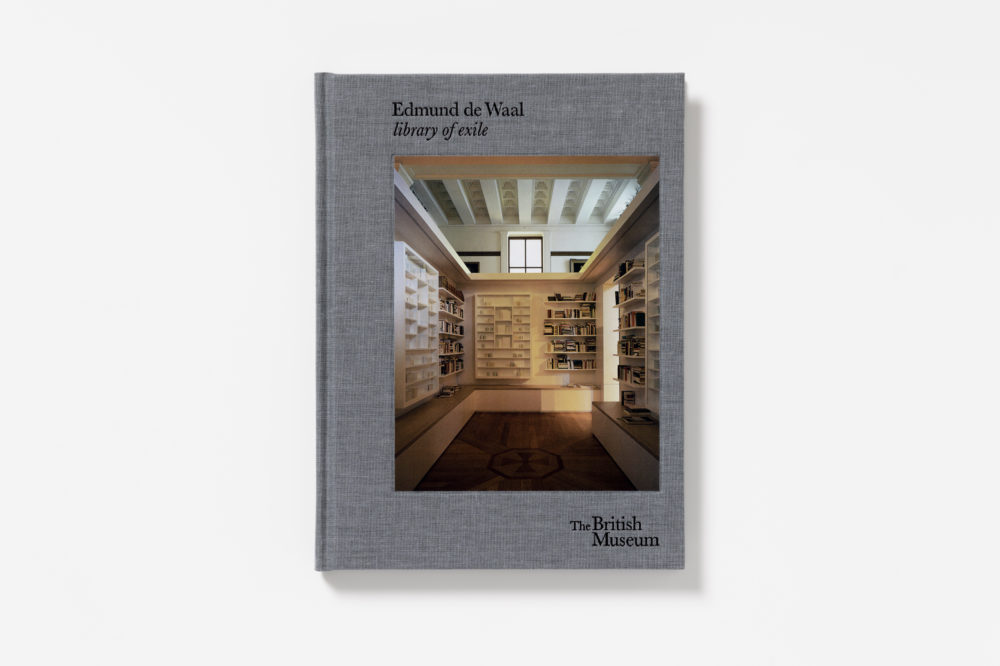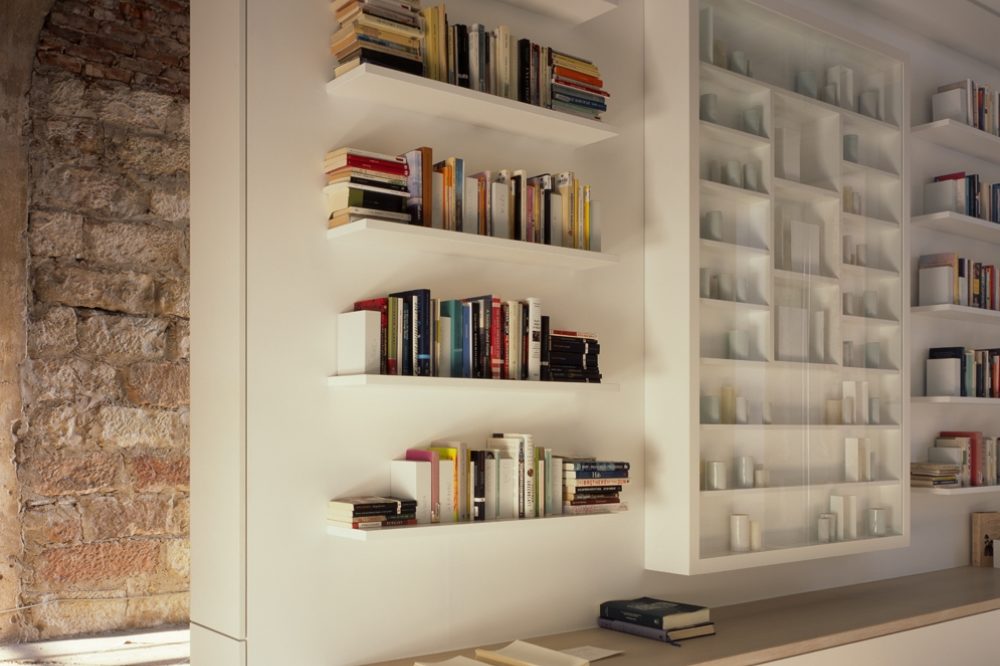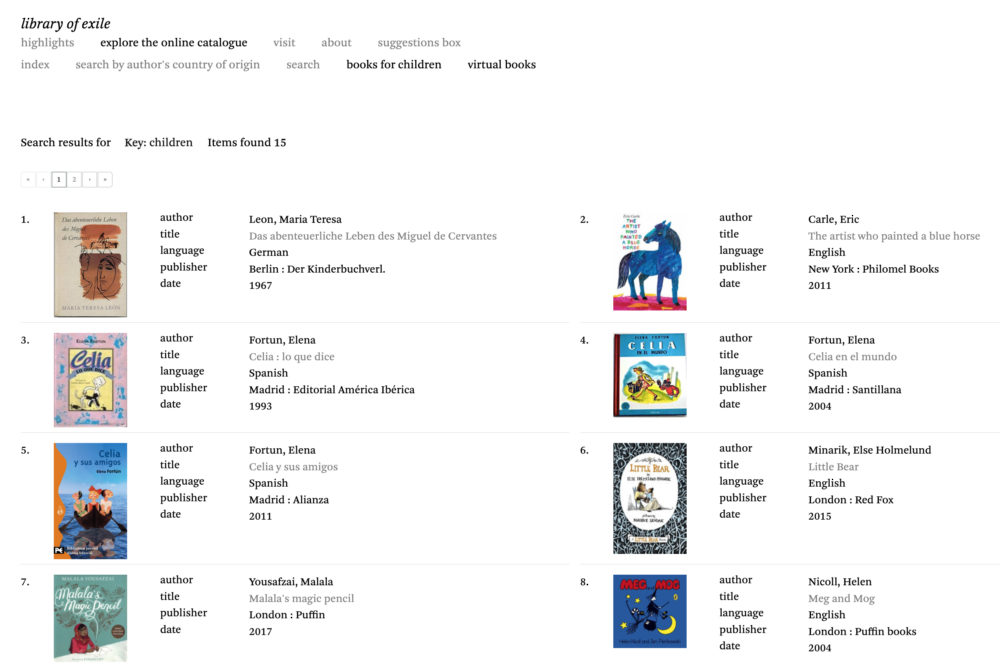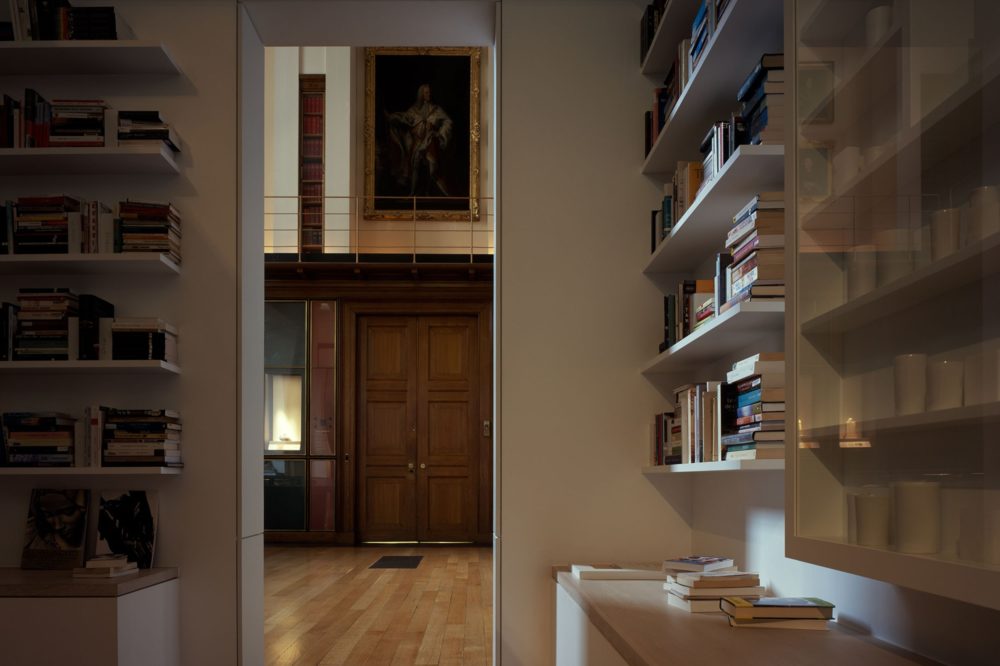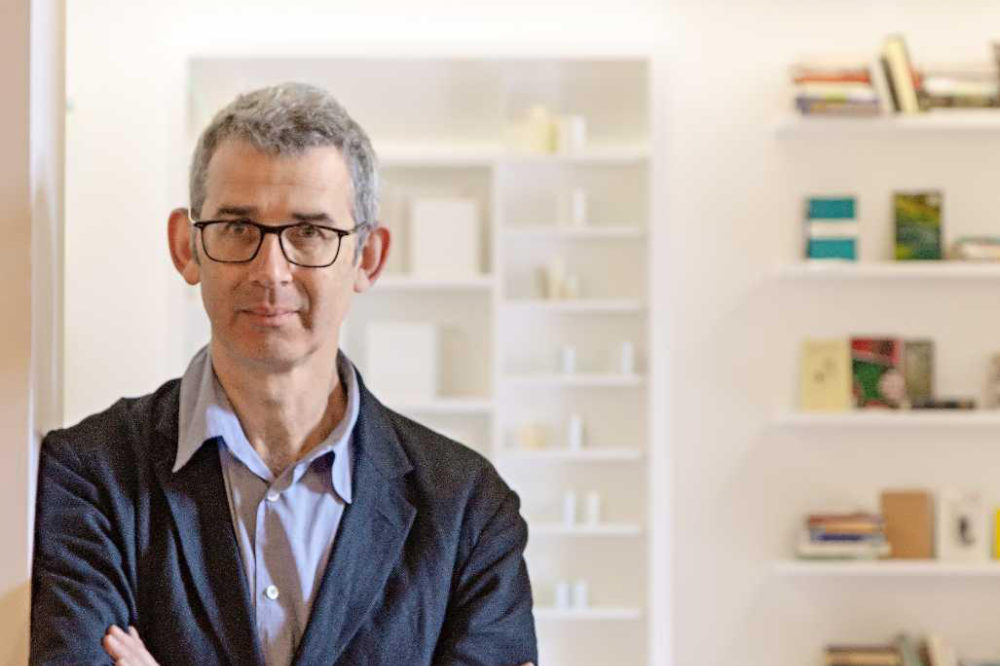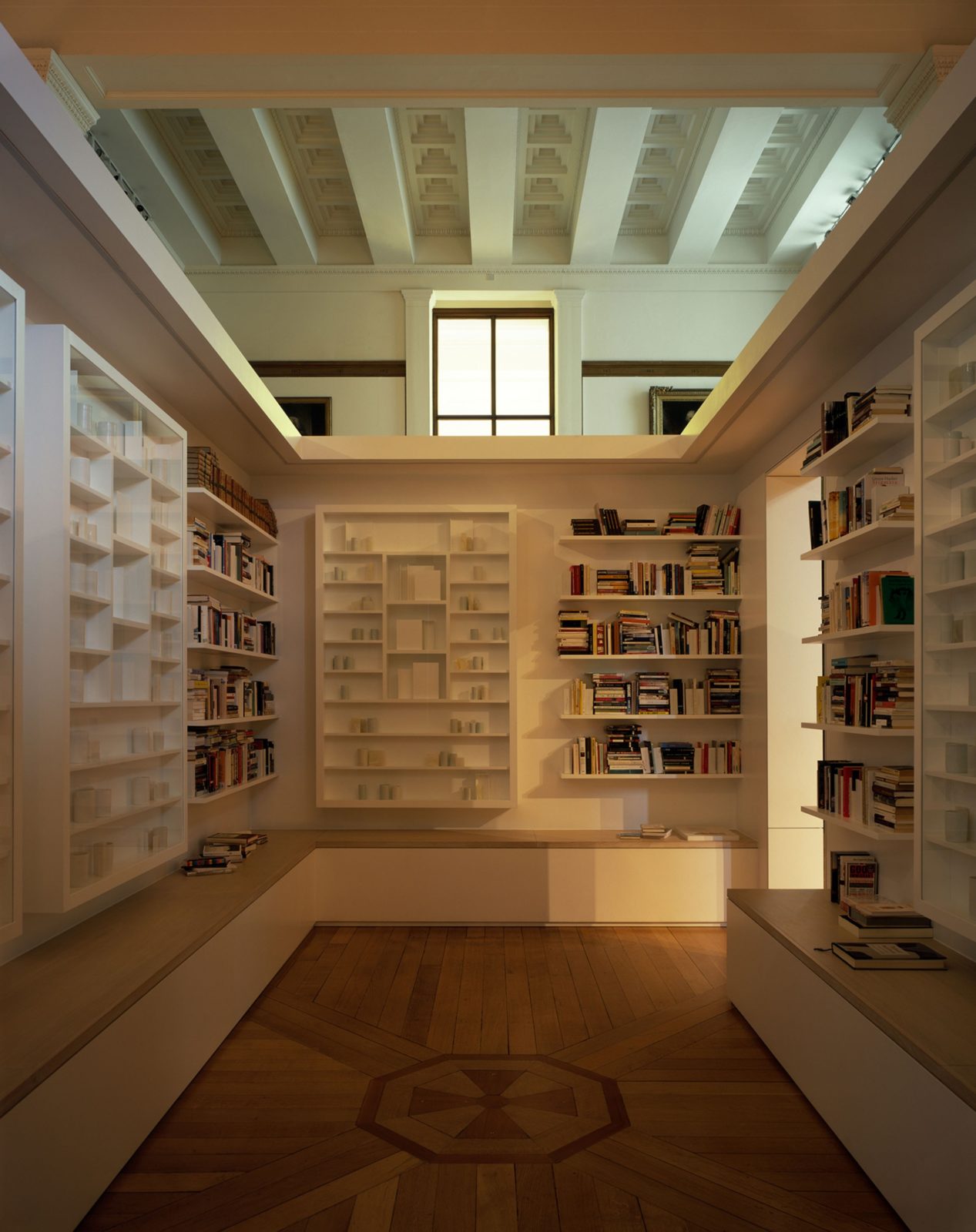
library of exile (installation view)2020
library of exile
British Museum, London
12 March 2020 – 12 January 2021
A hymn to writers in exile — The Economist
From Venice, to Dresden and then London, Edmund de Waal’s library of exile made its final stop at the British Museum in the spring of 2020. A temporary pavilion, designed as a place of dialogue and contemplation, where visitors were encouraged to sit and read from a collection of over 2,000 books by writers who have experienced exile from across the world. Almost all the books were translations, exploring the idea of language as migration. The library was free to visit and can still be explored via an online catalogue.
With the help of Book Aid International and the Iraqi Embassy, all the books have now been donated to the University of Mosul's library collection, destroyed by Isis in 2015. The external panels of the pavilion have been gifted to the Warburg Institute in London to be incorporated into their rebuild. Thousands of people from across the world engaged with the cultural programmes both in person and online. The panel discussions at the British Museum, organised in collaboration with English PEN, can be viewed again via the links below. The book published by the museum recording the project is available through their shop here, as is the publication psalm.
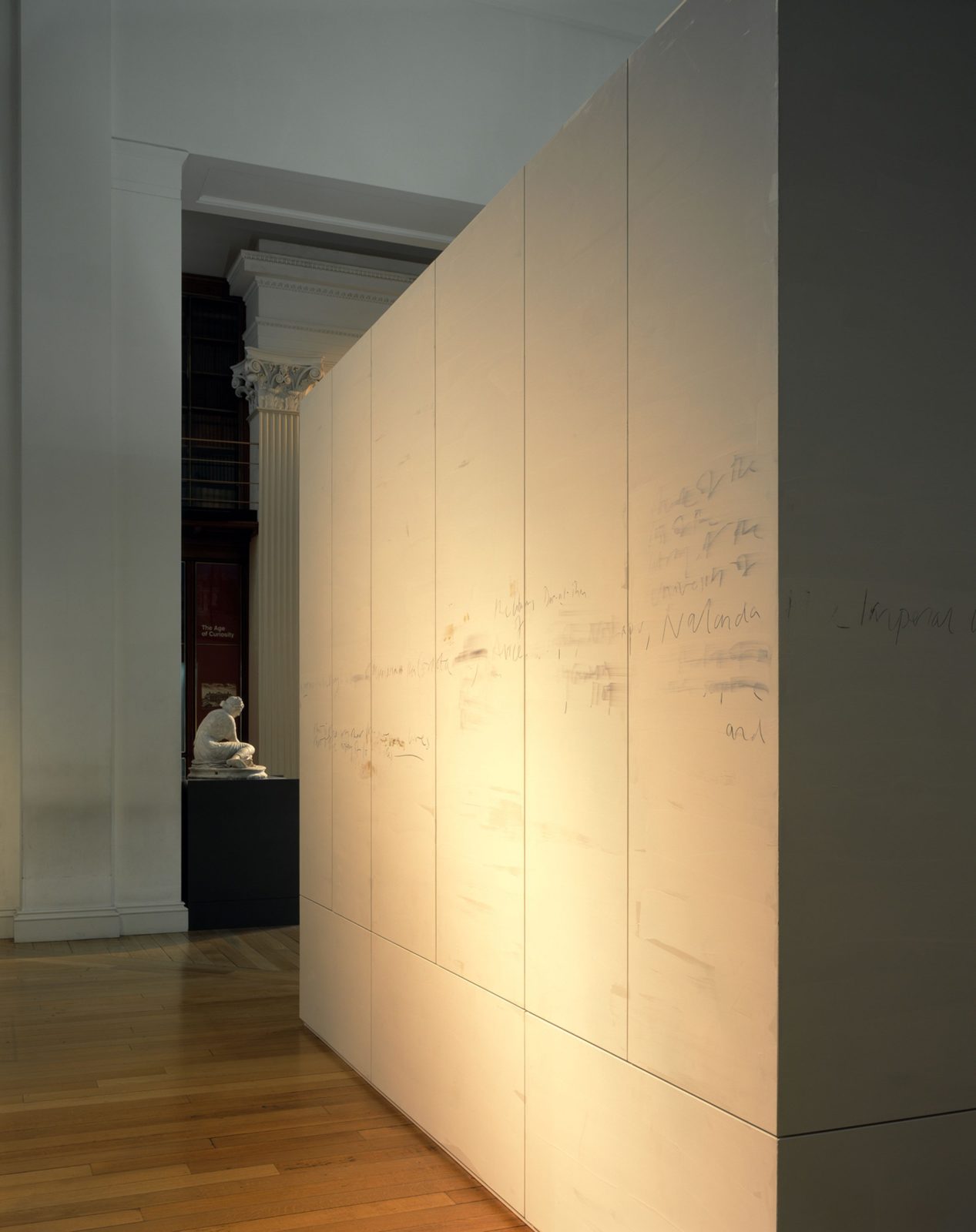
library of exile (installation view)2020
library of exile
British Museum, London
12 March 2020 – 12 January 2021
A hymn to writers in exile — The Economist
From Venice, to Dresden and then London, Edmund de Waal’s library of exile made its final stop at the British Museum in the spring of 2020. A temporary pavilion, designed as a place of dialogue and contemplation, where visitors were encouraged to sit and read from a collection of over 2,000 books by writers who have experienced exile from across the world. Almost all the books were translations, exploring the idea of language as migration. The library was free to visit and can still be explored via an online catalogue.
With the help of Book Aid International and the Iraqi Embassy, all the books have now been donated to the University of Mosul's library collection, destroyed by Isis in 2015. The external panels of the pavilion have been gifted to the Warburg Institute in London to be incorporated into their rebuild. Thousands of people from across the world engaged with the cultural programmes both in person and online. The panel discussions at the British Museum, organised in collaboration with English PEN, can be viewed again via the links below. The book published by the museum recording the project is available through their shop here, as is the publication psalm.
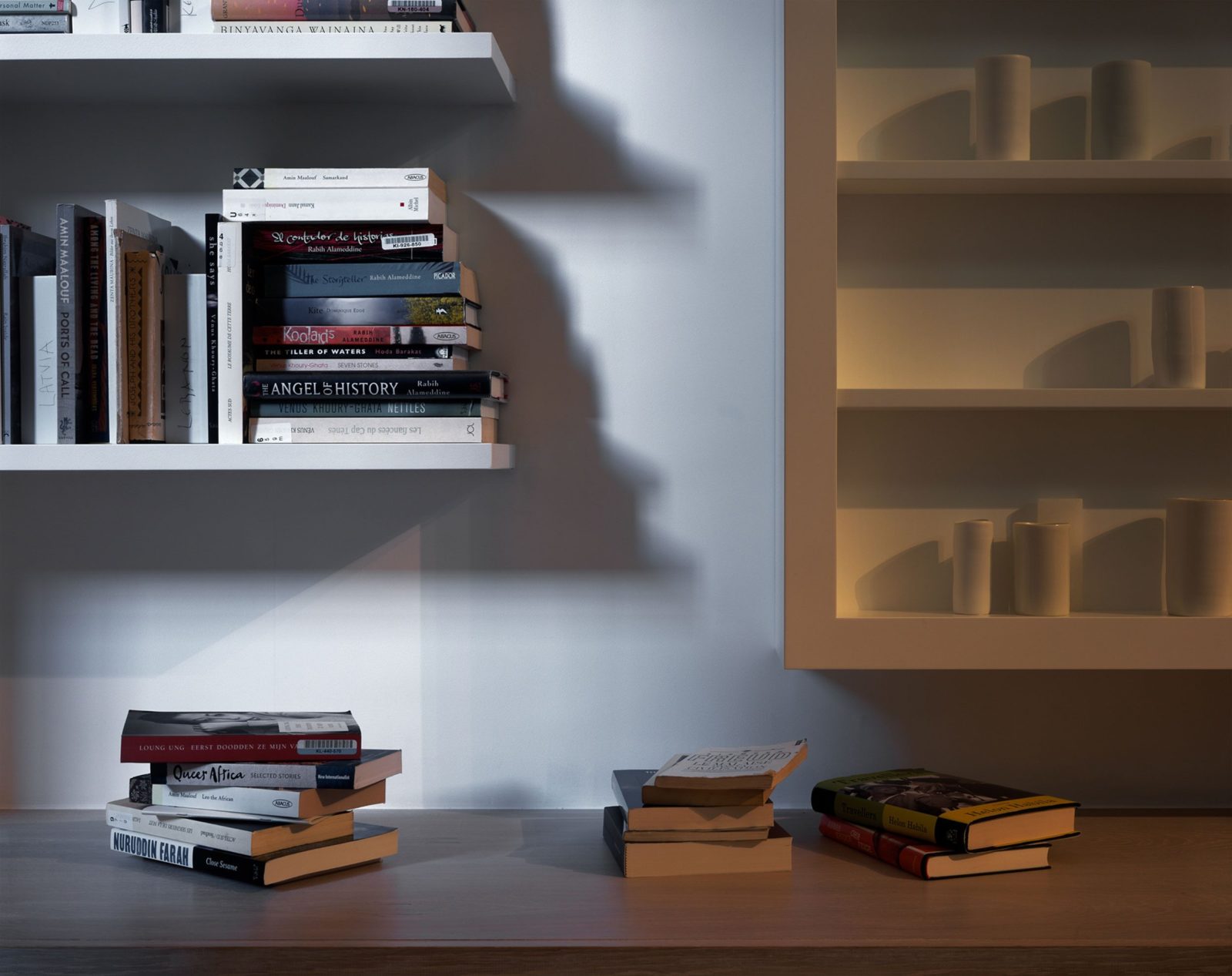
library of exile (installation view)2020
library of exile
British Museum, London
12 March 2020 – 12 January 2021
A hymn to writers in exile — The Economist
From Venice, to Dresden and then London, Edmund de Waal’s library of exile made its final stop at the British Museum in the spring of 2020. A temporary pavilion, designed as a place of dialogue and contemplation, where visitors were encouraged to sit and read from a collection of over 2,000 books by writers who have experienced exile from across the world. Almost all the books were translations, exploring the idea of language as migration. The library was free to visit and can still be explored via an online catalogue.
With the help of Book Aid International and the Iraqi Embassy, all the books have now been donated to the University of Mosul's library collection, destroyed by Isis in 2015. The external panels of the pavilion have been gifted to the Warburg Institute in London to be incorporated into their rebuild. Thousands of people from across the world engaged with the cultural programmes both in person and online. The panel discussions at the British Museum, organised in collaboration with English PEN, can be viewed again via the links below. The book published by the museum recording the project is available through their shop here, as is the publication psalm.
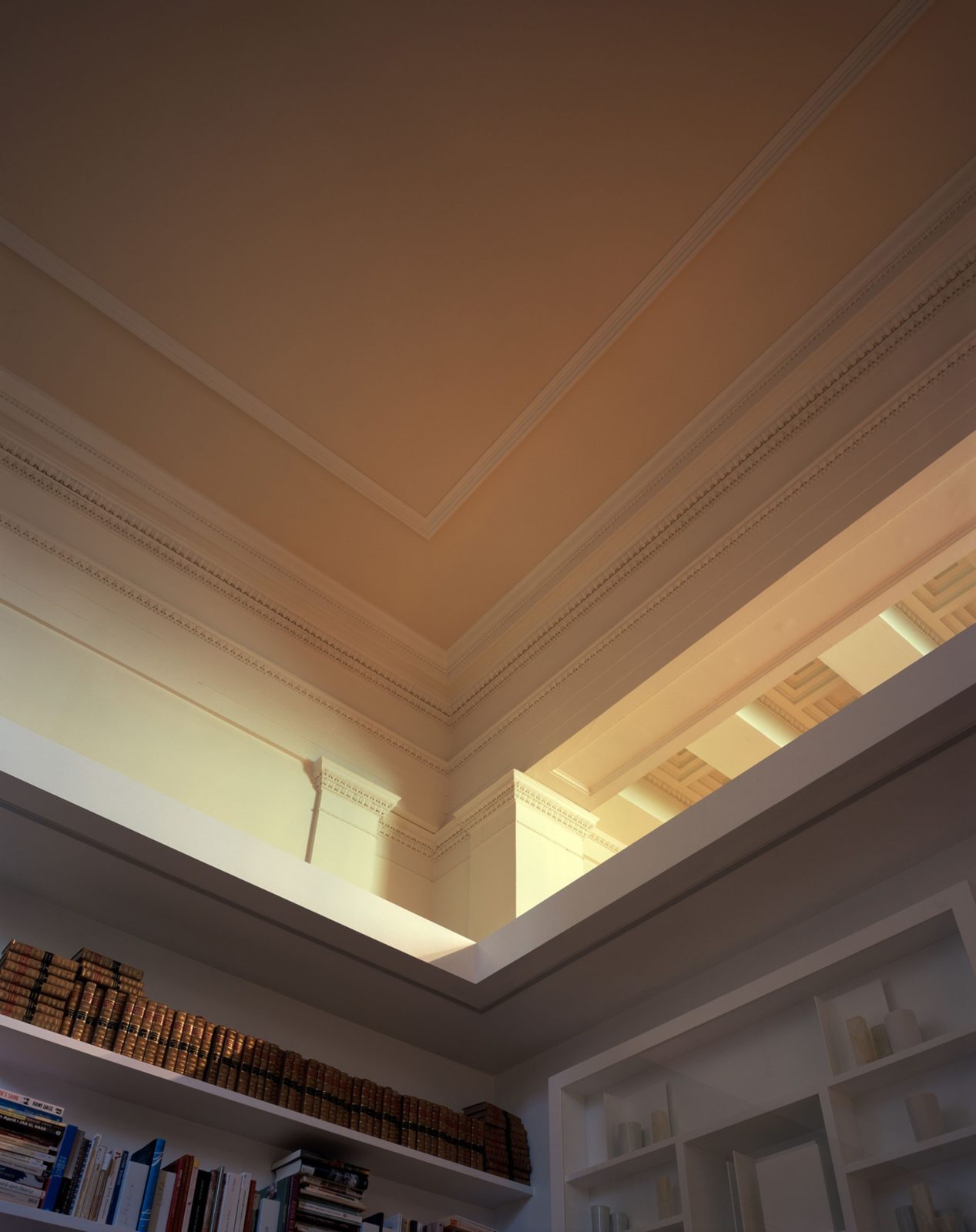
library of exile (installation view)2020
library of exile
British Museum, London
12 March 2020 – 12 January 2021
A hymn to writers in exile — The Economist
From Venice, to Dresden and then London, Edmund de Waal’s library of exile made its final stop at the British Museum in the spring of 2020. A temporary pavilion, designed as a place of dialogue and contemplation, where visitors were encouraged to sit and read from a collection of over 2,000 books by writers who have experienced exile from across the world. Almost all the books were translations, exploring the idea of language as migration. The library was free to visit and can still be explored via an online catalogue.
With the help of Book Aid International and the Iraqi Embassy, all the books have now been donated to the University of Mosul's library collection, destroyed by Isis in 2015. The external panels of the pavilion have been gifted to the Warburg Institute in London to be incorporated into their rebuild. Thousands of people from across the world engaged with the cultural programmes both in person and online. The panel discussions at the British Museum, organised in collaboration with English PEN, can be viewed again via the links below. The book published by the museum recording the project is available through their shop here, as is the publication psalm.
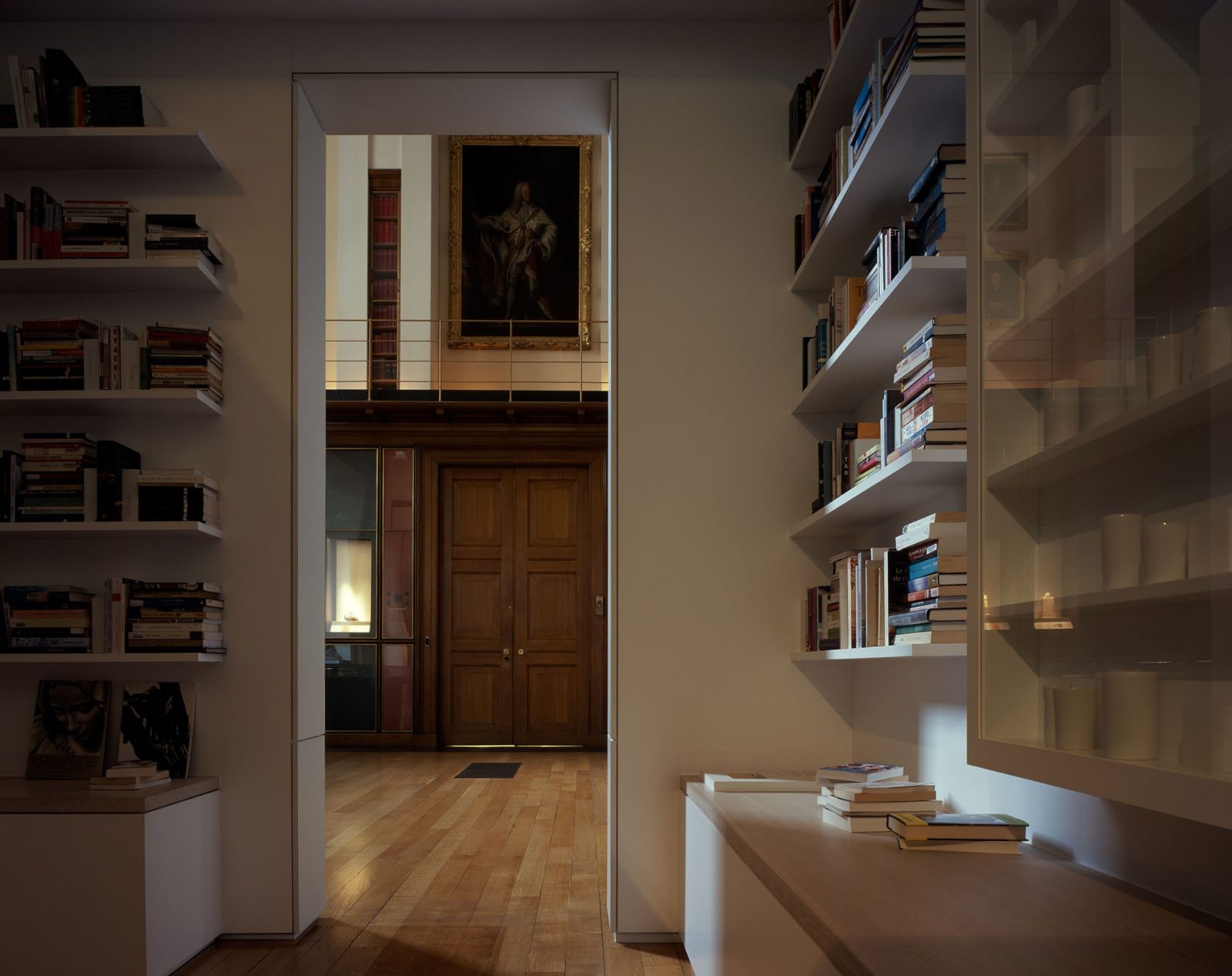
library of exile (installation view)2020
library of exile
British Museum, London
12 March 2020 – 12 January 2021
A hymn to writers in exile — The Economist
From Venice, to Dresden and then London, Edmund de Waal’s library of exile made its final stop at the British Museum in the spring of 2020. A temporary pavilion, designed as a place of dialogue and contemplation, where visitors were encouraged to sit and read from a collection of over 2,000 books by writers who have experienced exile from across the world. Almost all the books were translations, exploring the idea of language as migration. The library was free to visit and can still be explored via an online catalogue.
With the help of Book Aid International and the Iraqi Embassy, all the books have now been donated to the University of Mosul's library collection, destroyed by Isis in 2015. The external panels of the pavilion have been gifted to the Warburg Institute in London to be incorporated into their rebuild. Thousands of people from across the world engaged with the cultural programmes both in person and online. The panel discussions at the British Museum, organised in collaboration with English PEN, can be viewed again via the links below. The book published by the museum recording the project is available through their shop here, as is the publication psalm.
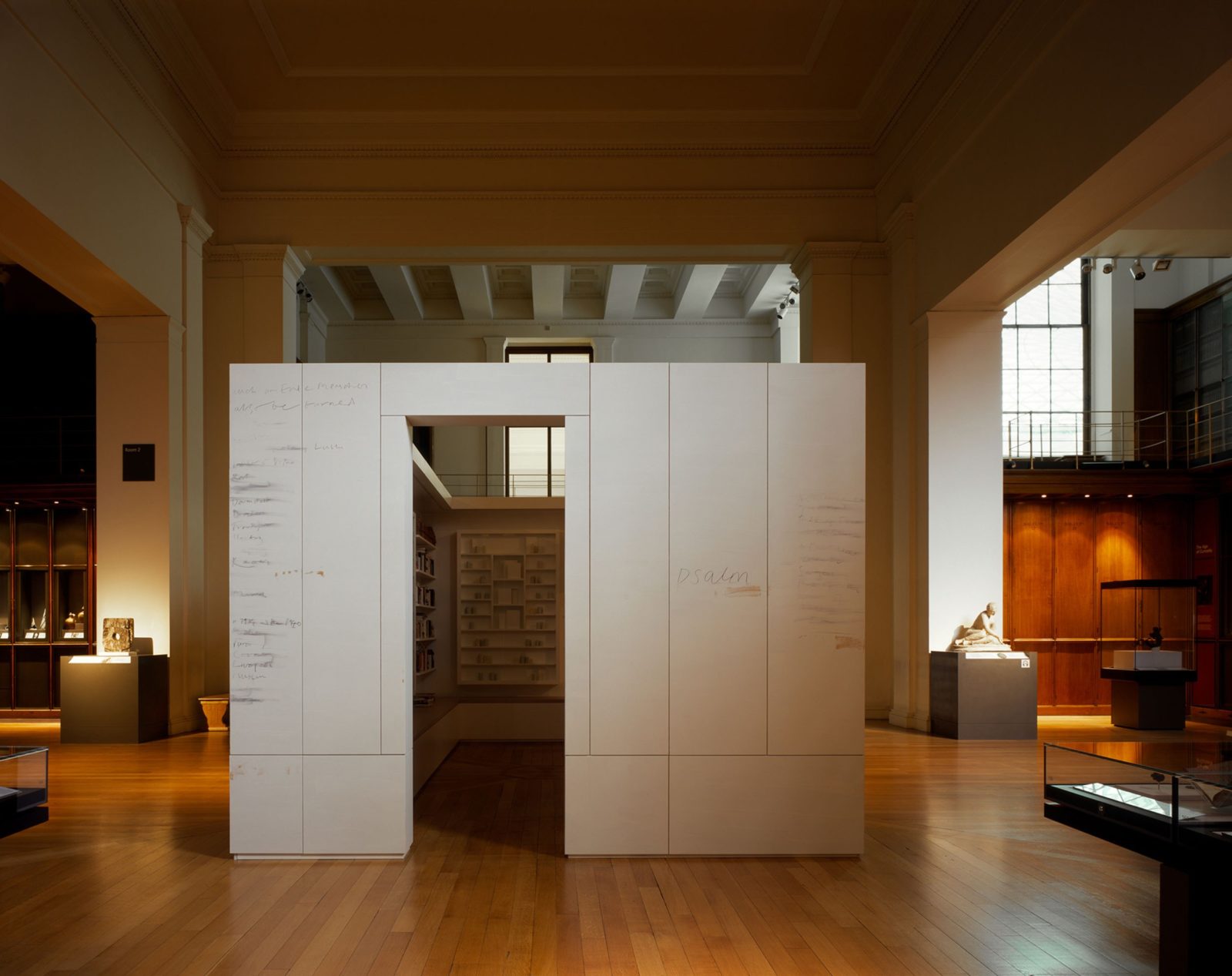
library of exile (installation view)2020
library of exile
British Museum, London
12 March 2020 – 12 January 2021
A hymn to writers in exile — The Economist
From Venice, to Dresden and then London, Edmund de Waal’s library of exile made its final stop at the British Museum in the spring of 2020. A temporary pavilion, designed as a place of dialogue and contemplation, where visitors were encouraged to sit and read from a collection of over 2,000 books by writers who have experienced exile from across the world. Almost all the books were translations, exploring the idea of language as migration. The library was free to visit and can still be explored via an online catalogue.
With the help of Book Aid International and the Iraqi Embassy, all the books have now been donated to the University of Mosul's library collection, destroyed by Isis in 2015. The external panels of the pavilion have been gifted to the Warburg Institute in London to be incorporated into their rebuild. Thousands of people from across the world engaged with the cultural programmes both in person and online. The panel discussions at the British Museum, organised in collaboration with English PEN, can be viewed again via the links below. The book published by the museum recording the project is available through their shop here, as is the publication psalm.
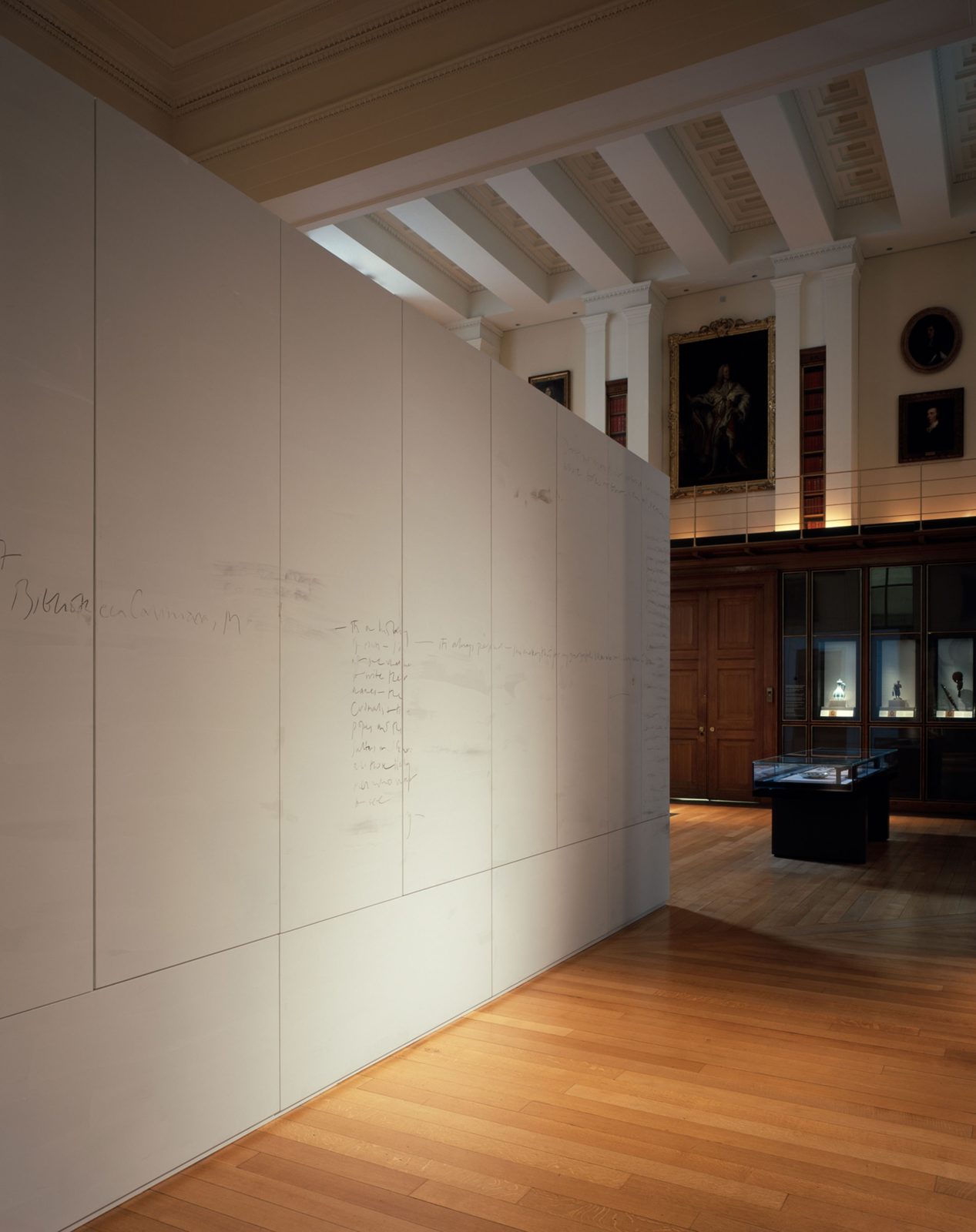
library of exile (installation view)2020
library of exile
British Museum, London
12 March 2020 – 12 January 2021
A hymn to writers in exile — The Economist
From Venice, to Dresden and then London, Edmund de Waal’s library of exile made its final stop at the British Museum in the spring of 2020. A temporary pavilion, designed as a place of dialogue and contemplation, where visitors were encouraged to sit and read from a collection of over 2,000 books by writers who have experienced exile from across the world. Almost all the books were translations, exploring the idea of language as migration. The library was free to visit and can still be explored via an online catalogue.
With the help of Book Aid International and the Iraqi Embassy, all the books have now been donated to the University of Mosul's library collection, destroyed by Isis in 2015. The external panels of the pavilion have been gifted to the Warburg Institute in London to be incorporated into their rebuild. Thousands of people from across the world engaged with the cultural programmes both in person and online. The panel discussions at the British Museum, organised in collaboration with English PEN, can be viewed again via the links below. The book published by the museum recording the project is available through their shop here, as is the publication psalm.
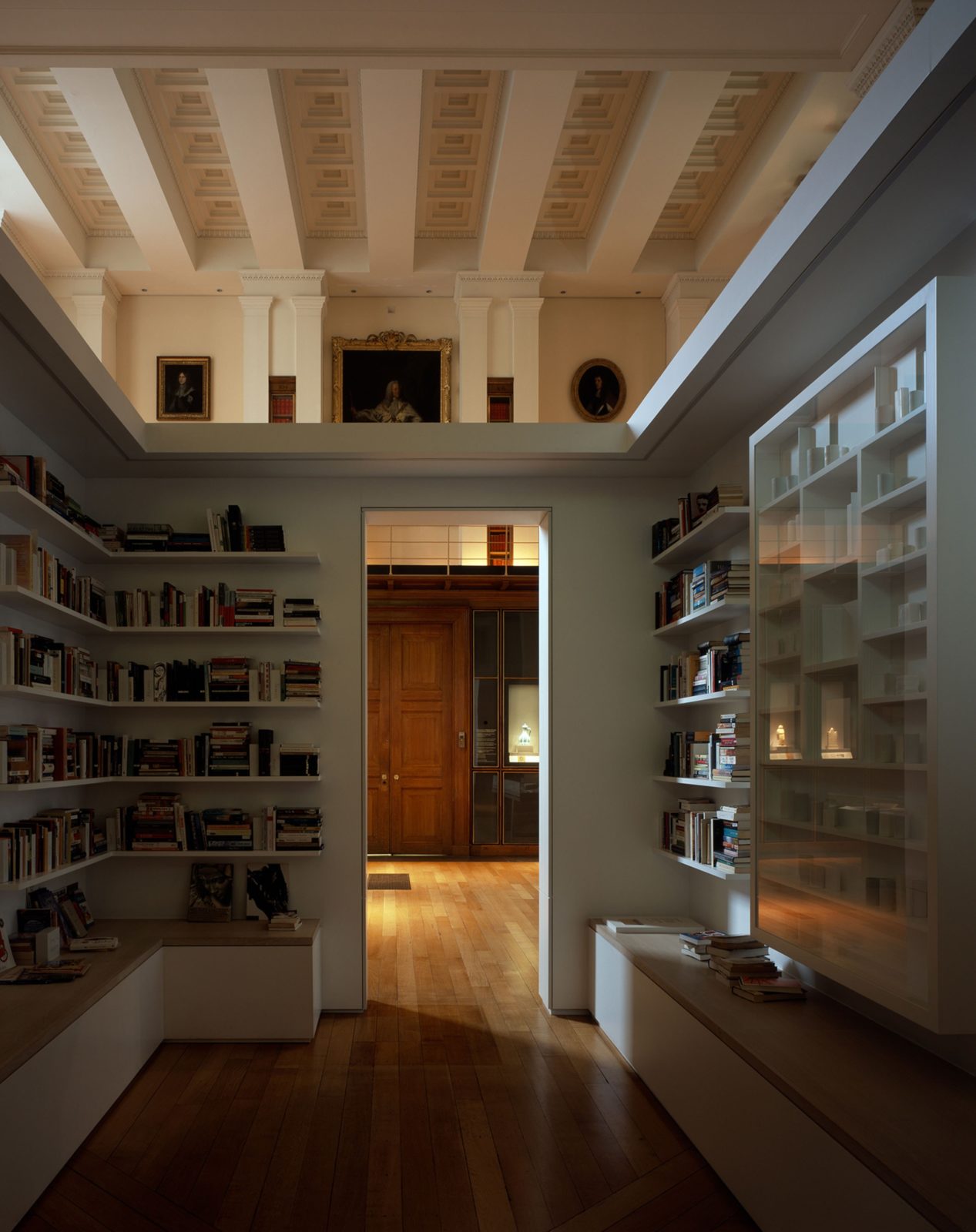
library of exile (installation view)2020
library of exile
British Museum, London
12 March 2020 – 12 January 2021
A hymn to writers in exile — The Economist
From Venice, to Dresden and then London, Edmund de Waal’s library of exile made its final stop at the British Museum in the spring of 2020. A temporary pavilion, designed as a place of dialogue and contemplation, where visitors were encouraged to sit and read from a collection of over 2,000 books by writers who have experienced exile from across the world. Almost all the books were translations, exploring the idea of language as migration. The library was free to visit and can still be explored via an online catalogue.
With the help of Book Aid International and the Iraqi Embassy, all the books have now been donated to the University of Mosul's library collection, destroyed by Isis in 2015. The external panels of the pavilion have been gifted to the Warburg Institute in London to be incorporated into their rebuild. Thousands of people from across the world engaged with the cultural programmes both in person and online. The panel discussions at the British Museum, organised in collaboration with English PEN, can be viewed again via the links below. The book published by the museum recording the project is available through their shop here, as is the publication psalm.
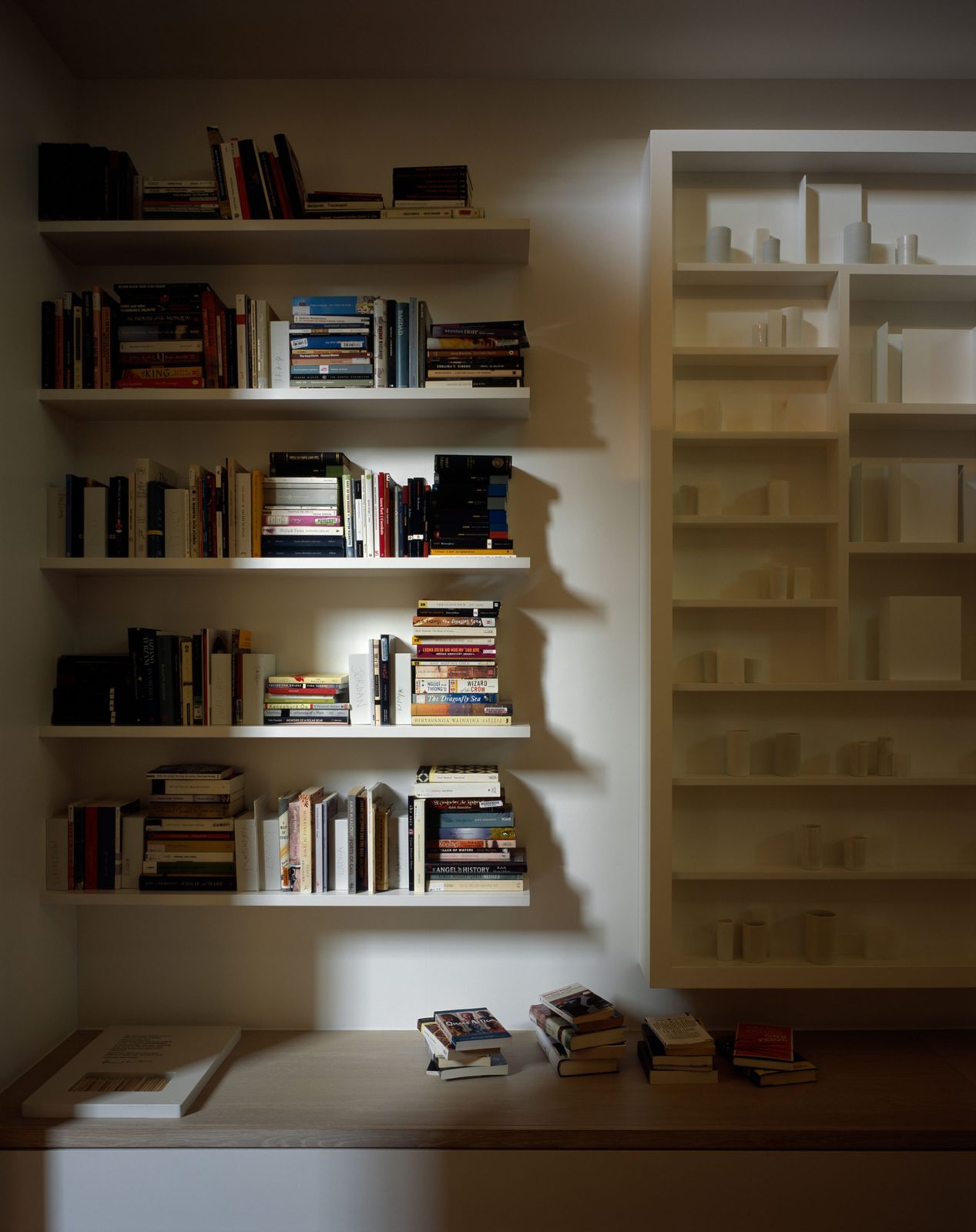
library of exile (installation view)2020
library of exile
British Museum, London
12 March 2020 – 12 January 2021
A hymn to writers in exile — The Economist
From Venice, to Dresden and then London, Edmund de Waal’s library of exile made its final stop at the British Museum in the spring of 2020. A temporary pavilion, designed as a place of dialogue and contemplation, where visitors were encouraged to sit and read from a collection of over 2,000 books by writers who have experienced exile from across the world. Almost all the books were translations, exploring the idea of language as migration. The library was free to visit and can still be explored via an online catalogue.
With the help of Book Aid International and the Iraqi Embassy, all the books have now been donated to the University of Mosul's library collection, destroyed by Isis in 2015. The external panels of the pavilion have been gifted to the Warburg Institute in London to be incorporated into their rebuild. Thousands of people from across the world engaged with the cultural programmes both in person and online. The panel discussions at the British Museum, organised in collaboration with English PEN, can be viewed again via the links below. The book published by the museum recording the project is available through their shop here, as is the publication psalm.
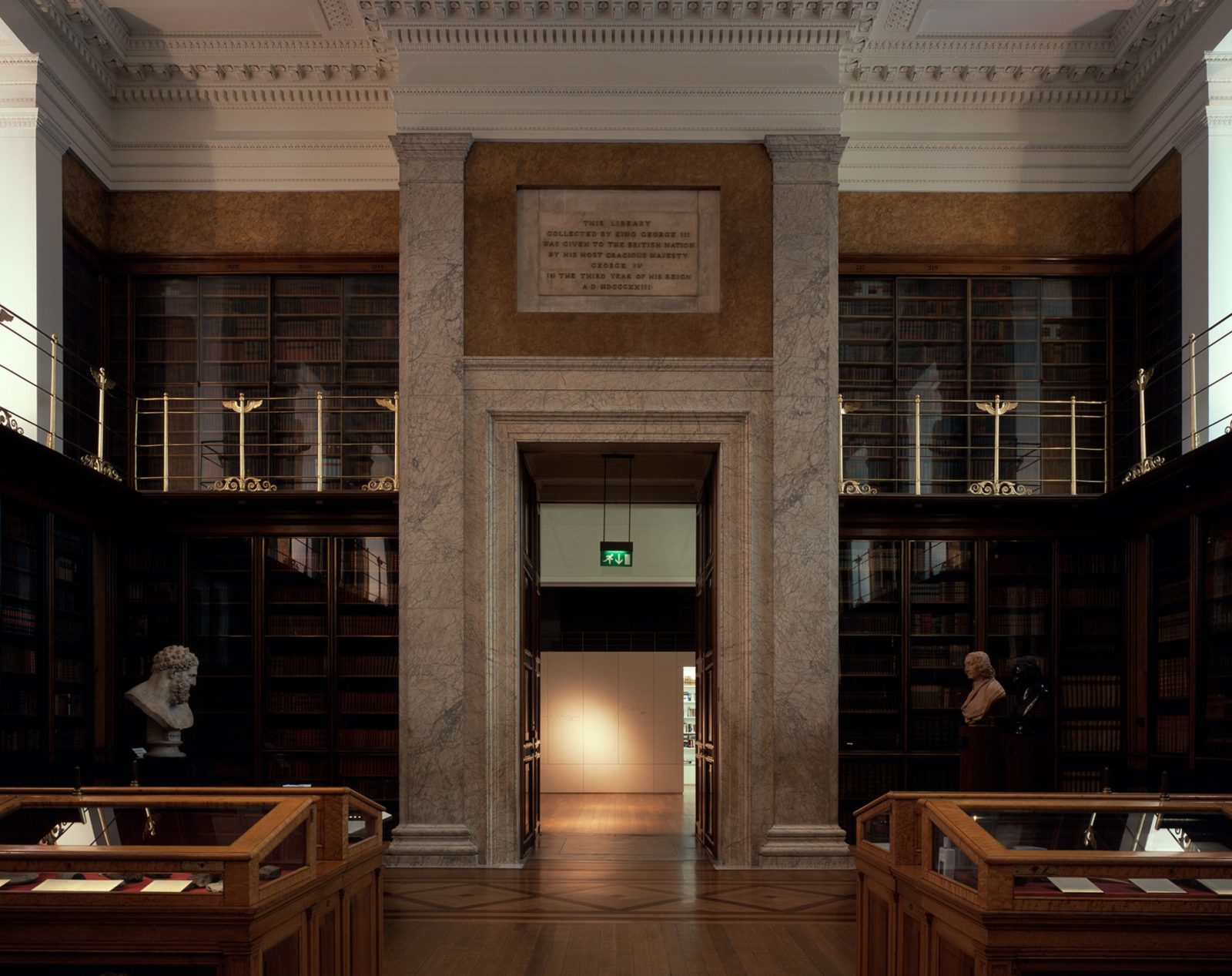
library of exile (installation view)2020
library of exile
British Museum, London
12 March 2020 – 12 January 2021
A hymn to writers in exile — The Economist
From Venice, to Dresden and then London, Edmund de Waal’s library of exile made its final stop at the British Museum in the spring of 2020. A temporary pavilion, designed as a place of dialogue and contemplation, where visitors were encouraged to sit and read from a collection of over 2,000 books by writers who have experienced exile from across the world. Almost all the books were translations, exploring the idea of language as migration. The library was free to visit and can still be explored via an online catalogue.
With the help of Book Aid International and the Iraqi Embassy, all the books have now been donated to the University of Mosul's library collection, destroyed by Isis in 2015. The external panels of the pavilion have been gifted to the Warburg Institute in London to be incorporated into their rebuild. Thousands of people from across the world engaged with the cultural programmes both in person and online. The panel discussions at the British Museum, organised in collaboration with English PEN, can be viewed again via the links below. The book published by the museum recording the project is available through their shop here, as is the publication psalm.
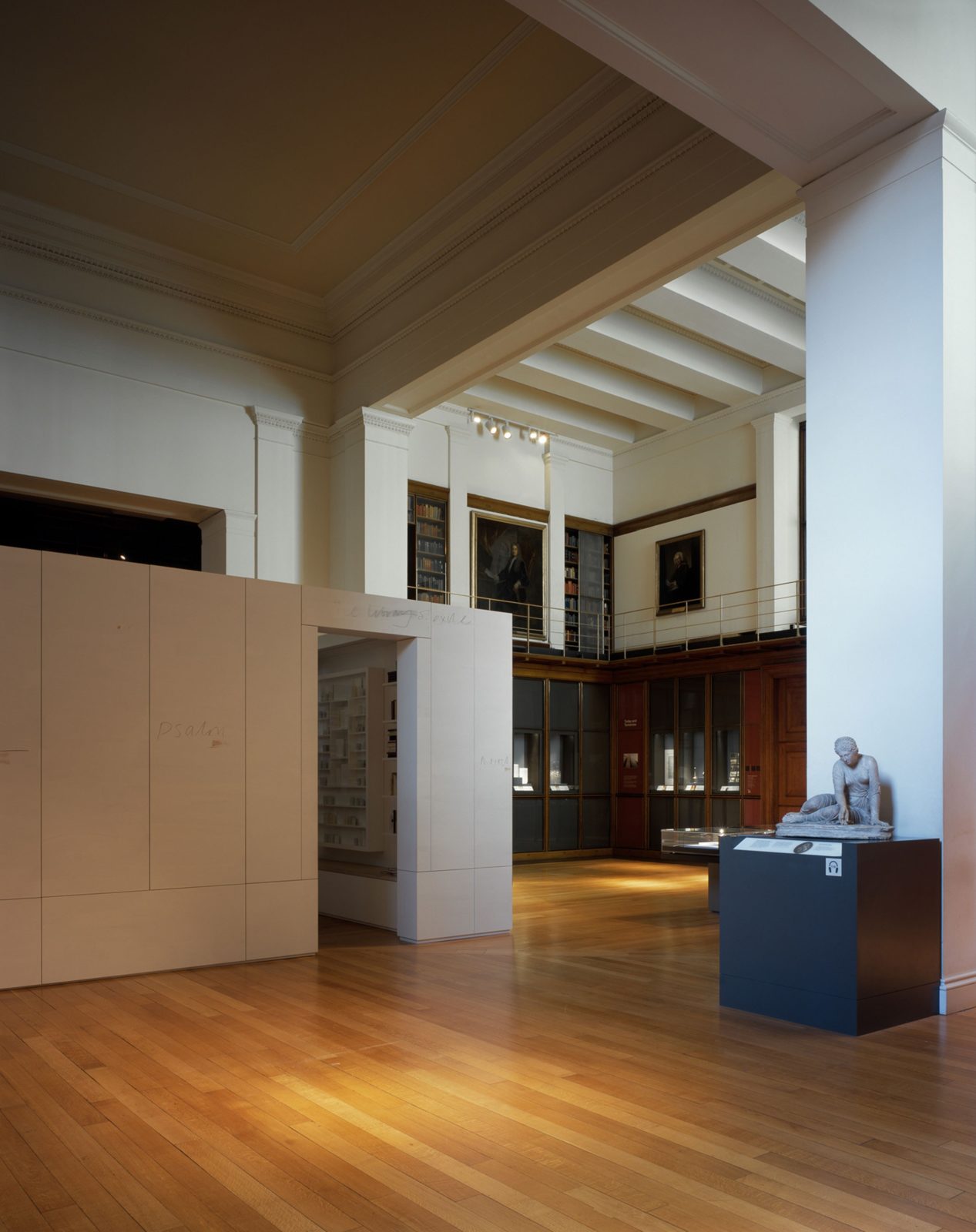
library of exile (installation view)2020
library of exile
British Museum, London
12 March 2020 – 12 January 2021
A hymn to writers in exile — The Economist
From Venice, to Dresden and then London, Edmund de Waal’s library of exile made its final stop at the British Museum in the spring of 2020. A temporary pavilion, designed as a place of dialogue and contemplation, where visitors were encouraged to sit and read from a collection of over 2,000 books by writers who have experienced exile from across the world. Almost all the books were translations, exploring the idea of language as migration. The library was free to visit and can still be explored via an online catalogue.
With the help of Book Aid International and the Iraqi Embassy, all the books have now been donated to the University of Mosul's library collection, destroyed by Isis in 2015. The external panels of the pavilion have been gifted to the Warburg Institute in London to be incorporated into their rebuild. Thousands of people from across the world engaged with the cultural programmes both in person and online. The panel discussions at the British Museum, organised in collaboration with English PEN, can be viewed again via the links below. The book published by the museum recording the project is available through their shop here, as is the publication psalm.
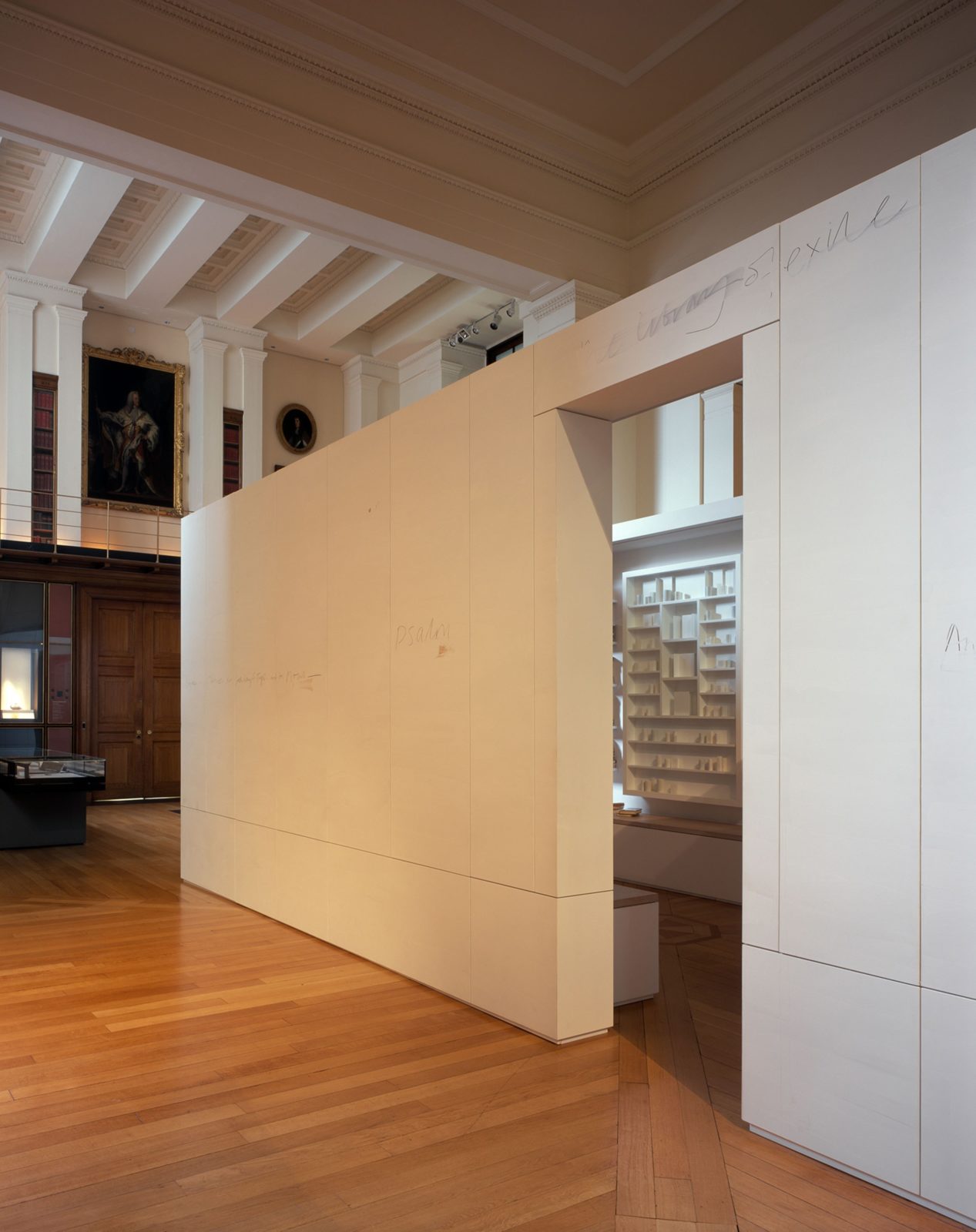
library of exile (installation view)2020
library of exile
British Museum, London
12 March 2020 – 12 January 2021
A hymn to writers in exile — The Economist
From Venice, to Dresden and then London, Edmund de Waal’s library of exile made its final stop at the British Museum in the spring of 2020. A temporary pavilion, designed as a place of dialogue and contemplation, where visitors were encouraged to sit and read from a collection of over 2,000 books by writers who have experienced exile from across the world. Almost all the books were translations, exploring the idea of language as migration. The library was free to visit and can still be explored via an online catalogue.
With the help of Book Aid International and the Iraqi Embassy, all the books have now been donated to the University of Mosul's library collection, destroyed by Isis in 2015. The external panels of the pavilion have been gifted to the Warburg Institute in London to be incorporated into their rebuild. Thousands of people from across the world engaged with the cultural programmes both in person and online. The panel discussions at the British Museum, organised in collaboration with English PEN, can be viewed again via the links below. The book published by the museum recording the project is available through their shop here, as is the publication psalm.
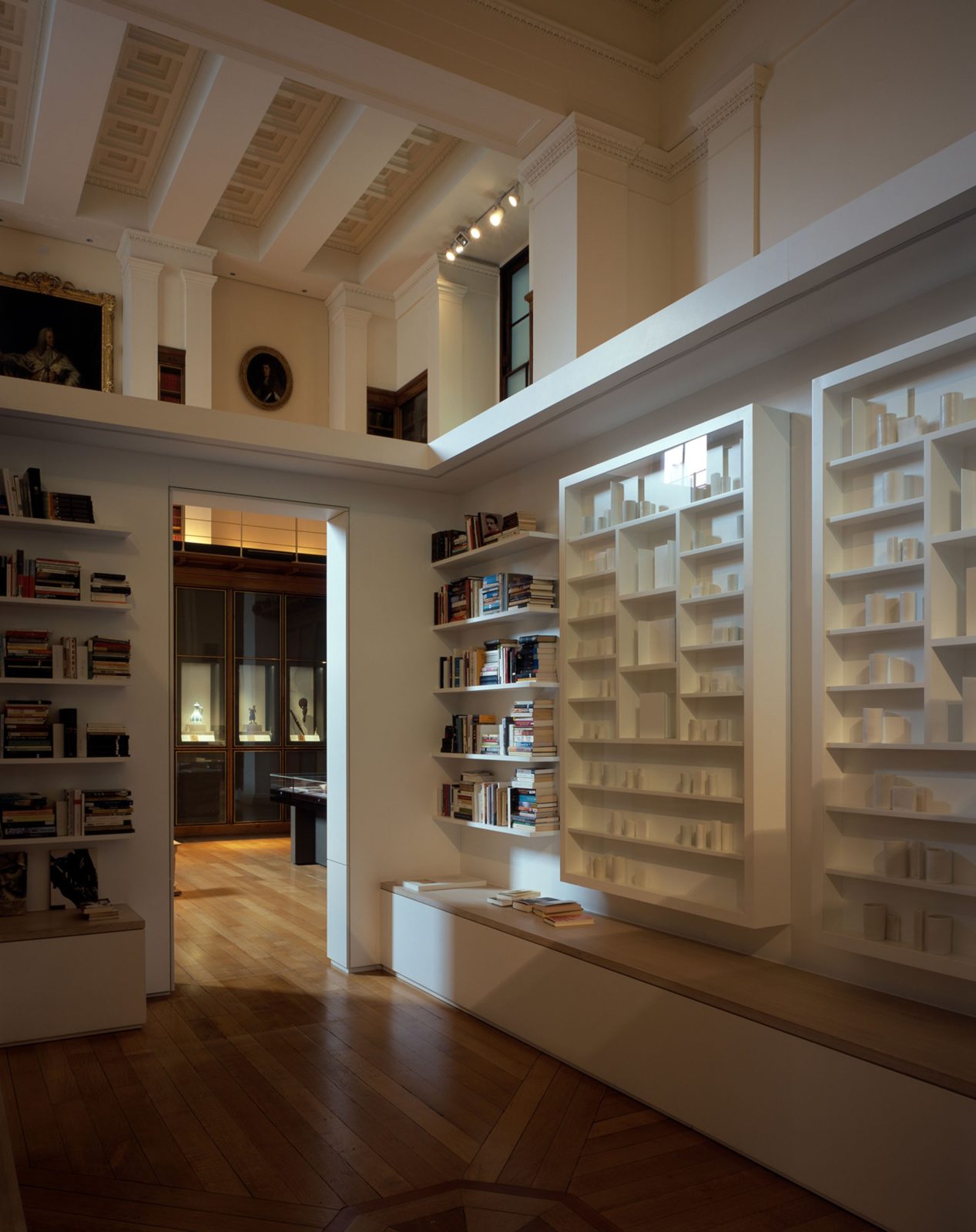
library of exile (installation view)2020
library of exile
British Museum, London
12 March 2020 – 12 January 2021
A hymn to writers in exile — The Economist
From Venice, to Dresden and then London, Edmund de Waal’s library of exile made its final stop at the British Museum in the spring of 2020. A temporary pavilion, designed as a place of dialogue and contemplation, where visitors were encouraged to sit and read from a collection of over 2,000 books by writers who have experienced exile from across the world. Almost all the books were translations, exploring the idea of language as migration. The library was free to visit and can still be explored via an online catalogue.
With the help of Book Aid International and the Iraqi Embassy, all the books have now been donated to the University of Mosul's library collection, destroyed by Isis in 2015. The external panels of the pavilion have been gifted to the Warburg Institute in London to be incorporated into their rebuild. Thousands of people from across the world engaged with the cultural programmes both in person and online. The panel discussions at the British Museum, organised in collaboration with English PEN, can be viewed again via the links below. The book published by the museum recording the project is available through their shop here, as is the publication psalm.
